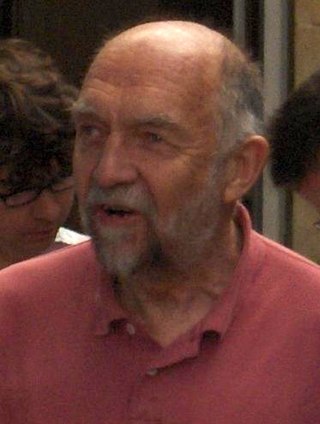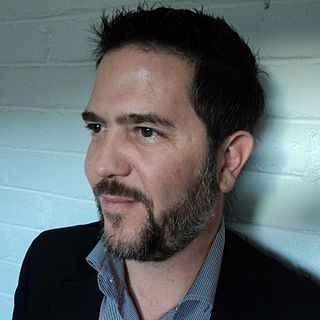Peter Collins (born 4 March 1945 [1] ) is a British academic who most recently worked at the University of Salford.
Peter Collins (born 4 March 1945 [1] ) is a British academic who most recently worked at the University of Salford.
Educated at Harrow School, he obtained an Open Scholarship to Christ Church, Oxford where he studied between 1963 and 1966 obtaining BA Hons (Second Class) in modern languages; followed by an MA (Oxon) in 1968. He studied for a second bachelor's degree at the University of London between 1969 and 1971 obtaining a first class BA Hons in philosophy in 1971. He returned to Oxford for his BPhil and Doctorate. [1]
After an early career as assistant master at Dulwich College, which he combined with his second bachelor's degree, he became lecturer/ senior lecturer in philosophy at Westminster College, Oxford and philosophy a tutor at the Open University between 1972 and 1975. In 1976 he moved to the University of Cape Town where he forged his academic career with periods within the departments of philosophy, political studies and management. In 1999 he was appointed associate professor of management, becoming director for the Centre for the Study of Gambling. In 2000 he joined the University of Salford as director for Centre for the Study of Gambling and Commercial Gaming, and senior lecturer. He was appointed professor of public policy studies in 2002 [1] and became an academic within Salford Business School.
He is the author of the book Gambling and the Public Interest and has been an adviser on gambling policy to governments in South Africa, Gibraltar, Jersey, the UK and Singapore.
He has four published books, eight chapters in books and numerous refereed journal articles, covering philosophy, politics and gambling. [1]
As project leader and principal author of the South African National and International Academic Research Project on Gambling and Public Policy, he was responsible for the various research and reports between 1995 and 1999 which was sponsored by both the public and private Sectors in South Africa. In 1999 he was appointed as a part-time Executive Director for the South African National Responsible Gambling Programme. After his move to the UK he became an expert adviser on casino matters to the Joint Scrutiny Committee to the House of Lords and the House of Commons which considered the new UK gambling act. [1]
He is a frequent[ weasel words ] keynote speaker at international conferences on gambling. [2]

Bachelor of Arts is a bachelor's degree awarded for an undergraduate program in the arts, or, in some cases, other disciplines. A Bachelor of Arts degree course is generally completed in three or four years, depending on the country and institution.
A bachelor's degree or baccalaureate is an undergraduate academic degree awarded by colleges and universities upon completion of a course of study lasting three to six years. The two most common bachelor's degrees are the Bachelor of Arts (BA) and the Bachelor of Science. In some institutions and educational systems, certain bachelor's degrees can only be taken as graduate or postgraduate educations after a first degree has been completed, although more commonly the successful completion of a bachelor's degree is a prerequisite for further courses such as a master's or a doctorate.
Degree abbreviations are used as an alternative way to specify an academic degree instead of spelling out the title in full, such as in reference books such as Who's Who and on business cards. Many degree titles have more than one possible abbreviation, with the abbreviation used varying between different universities. In the UK it is normal not to punctuate abbreviations for degrees with full stops, although this is done at some universities.
Philosophy, politics and economics, or politics, philosophy and economics (PPE), is an interdisciplinary undergraduate or postgraduate degree which combines study from three disciplines. The first institution to offer degrees in PPE was the University of Oxford in the 1920s.

John Leonard Eatwell, Baron Eatwell, is a British economist who was President of Queens' College, Cambridge, from 1996 to 2020. A former senior advisor to the Labour Party, Lord Eatwell sat in the House of Lords as a non-affiliated peer from 2014 to 2020, before returning to the Labour bench.

Sir Alan Peter Budd was a British economist, who was a founding member of the Bank of England's Monetary Policy Committee (MPC) in 1997.
In the universities of Oxford, Cambridge, and Dublin, Bachelors of Arts are promoted to the degree of Master of Arts or Master in Arts (MA) on application after six or seven years' seniority as members of the university. It is an academic rank indicating seniority, and not an additional postgraduate qualification, and within the universities there are in fact no postgraduate degrees which result in the postnominals 'MA'. No further examination or study is required for this promotion and it is equivalent to undergraduate degrees awarded by other universities.
Hugh Francis Durrant-Whyte is a British-Australian engineer and academic. He is known for his pioneering work on probabilistic methods for robotics. The algorithms developed in his group since the early 1990s permit autonomous vehicles to deal with uncertainty and to localize themselves despite noisy sensor readings using simultaneous localization and mapping (SLAM).
Patrick Diamond worked as a policy advisor under the Labour Party government of the United Kingdom in a role covering policy and strategy.
John Joseph Haldane is a British philosopher, commentator and broadcaster. He is a former papal adviser to the Vatican. He is credited with coining the term 'analytical Thomism' and is himself a Thomist in the analytic tradition. Haldane is associated with The Veritas Forum and is the current chair of the Royal Institute of Philosophy.

A Bachelor of Science is a bachelor's degree awarded for programs that generally last three to five years.

Sandra Fredman FBA, KC (hon) is a professor of law in the Faculty of Law at the University of Oxford and a fellow of Pembroke College, Oxford.

Sir Clifford Charles Butler FRS was an English physicist, best known for the discovery of the hyperon and meson types of particles. In later life, Butler was involved in educational policy, serving as director of the Nuffield Foundation and vice-chancellor of Loughborough University.

Jacques André Rousseau is a South African academic, secular activist and social commentator.

Peter Kagwanja is a Kenyan intellectual, adviser, reform strategist and policy thinker on governance, security and African affairs. From the early 1990s, Kagwanja was associated with Kenya's pro-democracy movement through his research and writings in the media, and was one of the founders of the University Academic Staff Union (UASU). As an emigre in South Africa (2003-2008), he was in the team of experts that provided technical backing to the intense policy processes that led to the creation of the African Union (AU) and its peace and security architecture. When Kenya's opposition ascended to power, Kagwanja became part of the technical team that re-engineered and realigned the country's foreign policy and strategy to the challenges of the 21st century. He became government adviser on the post-2008 reform agenda and strategy; managed its successful campaign for the New Constitution of Kenya and provided strategic thinking towards the transition to the post-Kibaki order. Kagwanja is a public intellectual who has authored many articles and books, including Kenya's Uncertain Democracy: The Electoral Crisis of 2008London: Routledge (2010).
Sir Bob Alexander Hepple was a South African-born legal academic and leader in the fields of labour law, equality and human rights.
Prince Chibudom Nwuchewas born in Enugu into the royal family of Clifford Cheta Nwuche and Grace Ogbuta Nwuche. He is from Ochigba town in Ahoada East in the Local Government Area of Rivers State.
Gareth John Darwin is a British historian and academic, who specialises in the history of the British Empire. From 1984 to 2019, he was the Beit Lecturer in Commonwealth History at the University of Oxford and a Fellow of Nuffield College, Oxford. He was a lecturer in history at the University of Reading between 1972 and 1984.
Dame Karin Judith Barber, is a British cultural anthropologist and academic, who specialises in the Yoruba-speaking area of Nigeria. From 1999 to 2017, she was Professor of African Cultural Anthropology at the University of Birmingham. Before joining the Centre of West African Studies of the University of Birmingham, she was a lecturer at the University of Ife in Nigeria. Since 2018, she has been Centennial Professor of Anthropology at the London School of Economics.